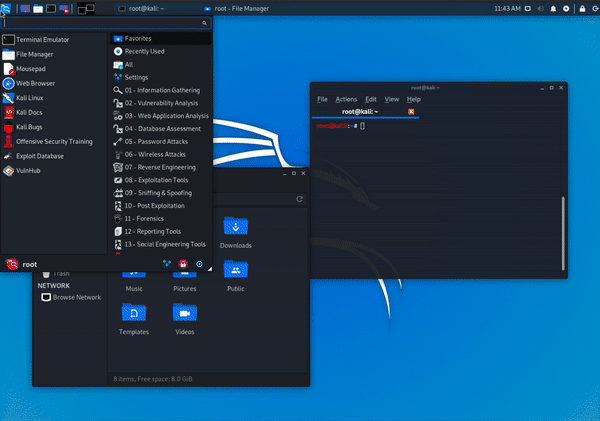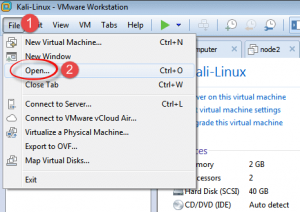
I suspect there is some technical reason as to why but I've never been able to find it either. VMWare’s free version is VirtualBox’s top competitor. I too have searched in vain and never found a compelling reason behind why WiFi is unable to be virtualized. The other approach that you could try would be to utilize a USB based WiFi Adapter that may allow for access to the WiFi directly within the VM guest. Kali Linux is a Debian-derived Linux distribution designed for digital forensics and penetration testing. VMWarePlayer is seen as having a better drag-and-drop between host and VM, yet VirtualBoxoffers you an unlimited number of snapshots (something that only comes in VMWareWorkstation Pro). Note : Download the ISO file according to your system architecture (32-bit or 64-bit) to avoid downloading the wrong version altogether. Which is better for Kali Linux VMWare or VirtualBox VirtualBoxtruly has a lot of support because it s open-source and free.

But the best practice is to have kali linux in virtualbox rather than dual boot. I would assume this is a limitation with the BIOS'. Before installing Kali Linux in VMware, the first thing you have to do is download the Kali Linux image by visiting the official website. If you about speed and performance both are appropriately equal.

To my knowledge I've never seen any virtualization technologies that have directly exposed the WiFi included in a laptop, into the guests. The hardware that's present in the physical host is interacted through virtual hardware that's presented to the guest VMs through the software BIOS that the various virtualization technologies provide. The WiFi on the host is not actually directly accessible to the VMware guests, or any VM guests using other technologies such as KVM, VirtualBox, etc.


 0 kommentar(er)
0 kommentar(er)
